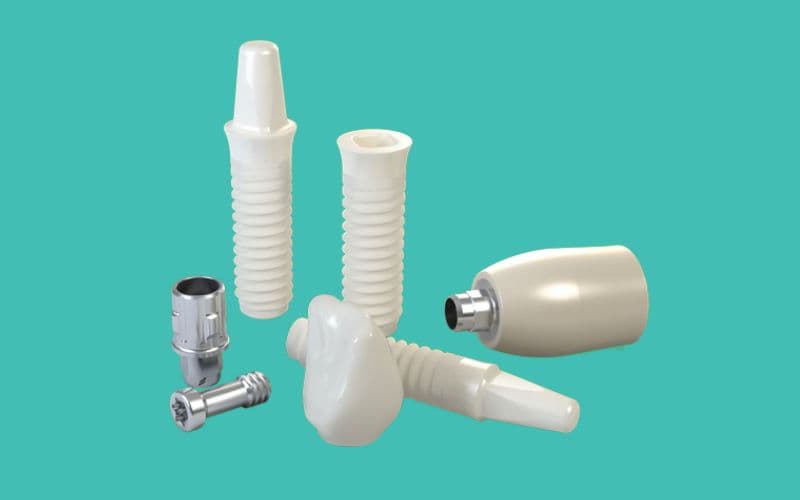L'implantology is a set of surgical techniques whose purpose is to replace one or more missing teeth through medical surgical devices called Dental implants, titanium screws that are placed in the jawbone (or in that of the cheekbone) onto which supports called "abutements" (or stumps) are screwed completely identical to natural teeth.
Thanks to dental implants Those who have lost one or more teeth can regain the functionality and aesthetics of their mouths safely: the installations are made in titanium, a non-allergenic material that is fully compatible with the that doesn't cause infection or risk of rejection.
Immediate load implants
This type of intervention allows to Loading temporary fixed prostheses as early as 48 hours after surgery; in this way, the patient can return to smiling and chewing almost immediately without any problems.
The provisional prosthesis is then replaced by definitive onea in a later period that may range 3 to 6 months after surgery.
This type of implantation is used whenever possible, but this is not always the case: in some cases it is necessary to use the traditional plants (deferred load).
Deferred load implants
With traditional systems the prosthesis cannot be loaded immediately, even the temporary one.
In order to do so, it is necessary to wait about 3 months, a period of time during which the patient is left with a "hole" waiting for the implant to be loaded although--to minimize blemishes and problems in chewing or speech--it is possible to use specific removable prostheses.
Zirconia dental implants

La zirconia is a biocompatible material, that is. Non-toxic and well tolerated by the human body, which is used to make high-quality dental implants.
It is a very strong and durable ceramic, capable of supporting the masticatory load without breaking or deforming. Compared with other materials used for dental implants, such as surgical steel or titanium, zirconia is more aesthetically pleasing, as it has a Natural white color approaching that of teeth.
In any case, it is important to note that Zirconia dental implants are not suitable for all patients; before undergoing this type of surgery, it is necessary to make a Accurate assessment of the health of the gums and maxillary or mandibular bone, so as to verify the actual possibility of placing the implants stably.
Equally important Is to scrupulously follow the dentist's instructions to prevent infection or other problems during the healing process.
In our study we use only Straumann® zirconia implants , the result of more than 12 years of continuous research and development leading to the design of ceramic implants capable of meeting premium quality standards.
They are in fact made of high-performance zirconia, tested to 100% and with revolutionary osseointegration (integration between bone and implant) characteristics.
Does placing a dental implant hurt?
Place a dental implant Is a common intervention that can be implemented in a short time; the duration of the procedure (about one hour to 3 hours) depends on the type of rehabilitation.
The operation is carried out with Local anaesthesia so the patient feels no pain During surgery.
After surgery, it is normal to have some degree of inflammation and/or pain; depending on the specific case, the dentist will prescribe supportive drug therapy and give all the information about what to do and what to expect from the postoperative course, which usually lasts a few days.
How to maintain a healthy dental implant?
The dental implant goes on to fully integrate into the bone and tissue by a process called osseointegrationThat's why, Will behave just like a real tooth.
La peri-implantitis is a pathology that affects dental implants: it is like the periodontitis of the implant and occurs when the system is not cleaned properly, So when oral hygiene is not effective enough.
However, the enemy number one of the plants is another: the cigarette smoke.
Those who smoke (especially those who smoke 10 or more cigarettes a day) go through a Very high risk that the implant surgery will be unsuccessful, so that the implant does not integrate with the bone causing problems and the need for further surgery.
Smokers undergoing implant surgery therefore should seriously consider the possibility of stop smoking or at least reduce the number of cigarettes; if it is not possible to stop smoking completely, it is necessary to Visit the dentist periodically to check the health of the implant and be able to intervene promptly in case of problems.
